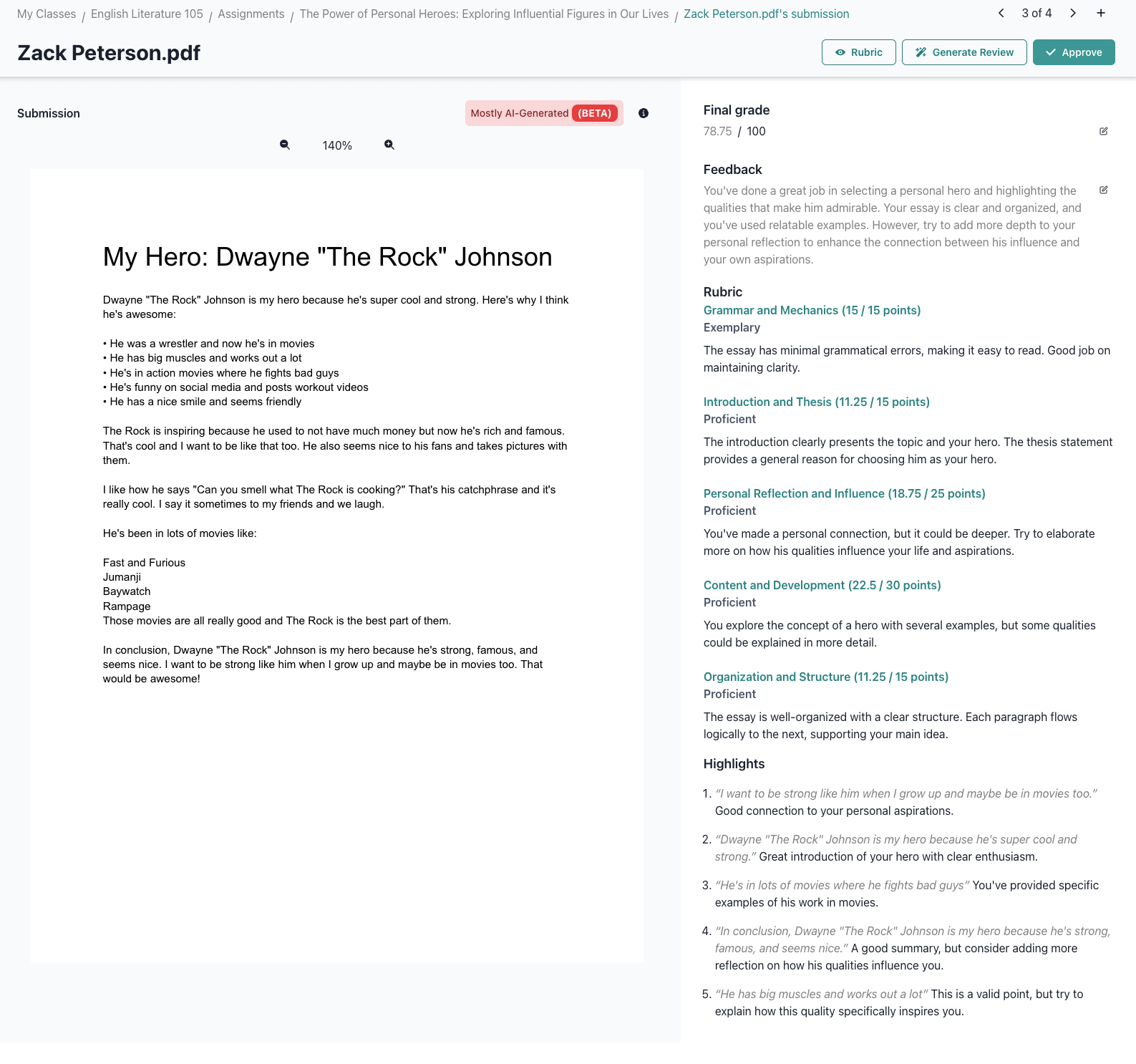A high school AP English teacher from Michigan, whom we’ll call Mr. Johnson (not his real name for privacy reasons), recently revealed the staggering mathematics behind grading student essays, and the numbers have left many people stunned.
The Basic Math: Time Per Essay
The experienced educator, who teaches multiple classes with approximately 120-135 students each trimester, broke down the harsh reality of what essay grading actually entails. According to Mr. Johnson, grading a single standard high school essay takes between 15-20 minutes on average.
“For the regular 11th graders with their in-depth research papers, it usually takes me 15 to 20 minutes to grade a single final draft,” Mr. Johnson explained. “And that’s assuming they’ve followed all the rules.”
For AP students, who write at a college level, the process can take even longer. “Longer form essays for the AP classes, when they’re learning methods of development and specific structures… we’re talking 20 to 30 minutes possibly per essay,” he noted.
The Staggering Total Hours
Let’s do the math: At an average of 15 minutes per essay for 120 students, that’s 30 hours of grading for just ONE assignment. For AP classes, where students might write “a dozen, if not more, essays within a trimester,” the numbers become overwhelming.
Mr. Johnson explained that AP students will write significantly more essays than regular classes: “They will write a dozen, if not more, essays within a trimester in an AP class. Whereas in an 11th grade class, a regular 11, they will write one and only one.”
It’s Not Just Assigning Grades
What many non-teachers don’t realize is that the time isn’t just spent calculating a score. “The feedback is what takes the most time in the grading process,” Mr. Johnson explained. “It will take me another 5 to 10 minutes to write up the feedback if feedback is needed.”
Unlike simply marking answers right or wrong, essay feedback requires explaining to students precisely what they did well and what they need to improve. “It’s not enough to say ‘hey, you didn’t do your thesis right’ – it’s ‘make sure when you craft a thesis that you do this,'” the teacher said.
Finding Efficiency Where Possible
To manage the workload, Mr. Johnson has developed some efficiency strategies, including creating sets of common feedback for frequently occurring issues.
“I’ll have a set of blanket comments… that helps cover like 80% of the mistakes. And then I can give tailored feedback on the 10% or 20% that are uniquely their issues,” he explained.
Using rubrics also helps streamline the grading process, though it doesn’t eliminate the need for individualized feedback. As Mr. Johnson noted, “Rubrics, grading to rubrics helps a lot… that’s helpful with the grading. It’s not very helpful with the feedback.”
The Volume Challenge Across Education
When asked what ideal solution he would want for this challenge, Mr. Johnson described a system that provides targeted feedback based on individual student needs while tracking progress across grades and subjects.
The sheer volume of grading has many teachers wondering if there’s a better way. As schools and educators continue exploring technology solutions to address these challenges, the math remains undeniable: teaching writing effectively requires an enormous time investment that often goes unrecognized outside the profession.
A New Solution Teachers Can Try Today
For educators looking to reduce their grading time while still providing quality feedback, Wise Owl Teacher offers a promising solution. This new tool is specifically designed to help teachers finish essay grading in minutes rather than hours, allowing them to focus more on teaching.
The tool provides targeted feedback based on rubrics and can handle multiple student essays at once. Best of all, teachers can sign up to Wise Owl Teacher for FREE. To learn more or start a free trial, visit WiseOwlTeacher.com.


